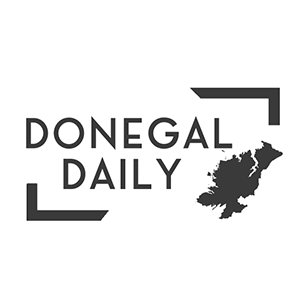WHEN RORY GALLAGHER began kicking ball on the Navan Road back in 2002 he got an insight as to what football was like in the capital.
Belleek, Gallagher’s hometown in Fermanagh, and Blanchardstown seem worlds apart in football terms but a similar ethic existed between their respective clubs Erne Gaels and St Brigid’s.
It’s something that has stuck with the current Donegal manager, who recalled the difference in rural and urban as recently as yesterday.
“That’s something that a lot of people living outside Dublin do not grasp,” he said. “There is this perception of their clubs that there are a lot of outsiders but to see the people that are around the work they put into it going out on Saturday mornings repeatedly in developing the players. I would really admire the work that went in.”
St Brigid’s, with Gallagher continuing the form that, by early 2003, had seen him top-score in Ulster for three successive years, won the Dublin championship and then claimed the provincial crown courtesy of a 3-11 to 1-10 victory over Kildare’s Round Towers.
[adrotate group=”53″]“Playing with St Brigid’s was a great experience, winning a Dublin championship and we went on to win Leinster with them. Up to this point, working with these lads, it was the most enjoyable experience I have had in football,” he added.
A then 23-year-old Gallagher had made the move to Dublin as he had just finished a Business Studies degree at IT Sligo in 2002. With some GAA coaching certificates stuffed into his bag, he took up a position in the Blanchardstown-Castleknock area.
It, too, was an eye-opener.
[adrotate group=”38″]“I worked as a coach and it was a phenomenal experience,” Gallagher added. “Philly McMahon, Johnny Cooper, Diarmuid Connolly, these guys when they were 14, 15 and 16. Paddy Andrews is one I would have worked with for a good few years.”
At the time, Dublin were mired almost halfway through a 16-year sabbatical where Sam Maguire only spent time in the capital to be scrubbed up and handed to the winning captain every September to take back to the sticks.
When Gallagher was in Dublin, he admits that the signs of a blue wave coming weren’t particularly obvious to begin with but foundation stones were being put in place.
[adrotate group=”37″]“It was hard to see it coming,” he said. “Dublin had not won a Leinster in seven years and you could see the elation when they won in 2002 and got close to reaching an All-Ireland final. You could see it building with the amount of work that was going on in the club scene.”
Dublin have since stamped their authority on football; since Stephen Cluxton kicked an injury-time free to defeat Kerry in the 2011 final to end the drought following a curious 0-8 to 0-6 All-Ireland semi-final win over Donegal.
Gallagher was Jim McGuinness’s assistant in 2011 and a year later as Donegal took Sam to the Hills for only the second time.
[adrotate group=”63″]Now, Dublin have won three out of the last five All-Irelands and they’re rampant favourites again. The last team to beat them, famously, was Donegal in the 2014 All-Ireland semi-final on a 3-14 to 0-17 scoreline.
That was seen as a shock to the wider football public, although in Donegal less so.
Gallagher wasn’t involved that season, as McGuinness had shuffled his backroom team in the wake of Donegal’s failed attempt to reclaim the All-Ireland in 2013.
Now, on Saturday, as they meet Dublin, this time in the All-Ireland quarter-final, Gallagher’s Donegal have been written off with as many blobs of ink as his predecessor’s side was in 2014. Jim Gavin’s Dublin have won everything in front of them since.
[adrotate group=”68″]“The level of performance that we’re capable of, we feel we can beat anybody and that would have been the same looking from relatively on the outside in 2014,” added Gallagher.
“The whole country obsesses about Dublin. When you are in Ulster you worry about Ulster first. You keep an eye on Dublin all year of course. They are a very good side. It is up to others to determine how good they are; all we are concerned with is being ready on Saturday evening.
[adrotate group=”76″]“They beat us in 2011, we beat them in 2014. It is like a lot of rivalries you can see one game as defining but they are not really. We learned a lot from 2011; I am sure Dublin learned a lot form 2014 and Saturday evening will present a new challenge for both teams.
“For sure they are beatable. Dublin would be very much aware of that. To beat them you have to do an awful lot of things right. You have to produce a level of intensity that is greater than theirs. You have to make sure when you get the chances that you put them away. That’s the challenge for us.”
Tags:





